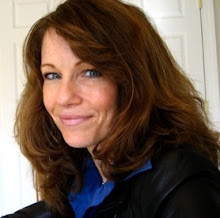Somewhere
in my travels through the bloggy universe, I read a five star review of a book
titled Plot Versus Character: A Balanced
Approach to Writing Great Fiction by Jeff Gerke. Since I love books on
craft and can’t resist anything with great fiction in the title, I picked up a copy. Of course it ended up on a books to be read shelf, but, since I
wasn’t absorbing its information by simply sharing office space with it, I recently
read the thing--and I loved it.
Mr.
Gerke maintains that there are two types of novelists. Those for whom plot
comes naturally and those for whom characters come naturally. Frankly, I don’t
think I fit into either category, but whatever. The point is this: the plotter
must find “the plot of the main character’s change,” while the
character-inspired novelist must build plot by “finding the story within the
main character.” Either way, the main character’s layers and inner journey is
the spine of the novel.
The
book is divided into sections: “Memorable Characters” followed by “Marvelous
Plots,” and a final section that discusses the union of plot and characters. Within
these sections there are diagrams, examples, suggestions, tricks, and tips. For
example, Mr. Gerke recommends that writers read a book on psychology and
temperament titled Please Understand Me
II by David Keirsey. I am halfway through this fascinating book on
personality types and I’ve just about worn out my highlighter. There’s no doubt
that the information in this book will help me to develop deep, layered
characters with substance.
So,
if you’re up for an interesting read on developing multi-layered characters
with riveting inner journeys capable of fueling a three act story structure, grab a copy of Plot Versus Character: A Balanced Approach
to Writing Great Fiction. It’s worth the read.
Or
have you read it? If so, what did you think about it? Have you read
Have you read any other good books on craft lately?










